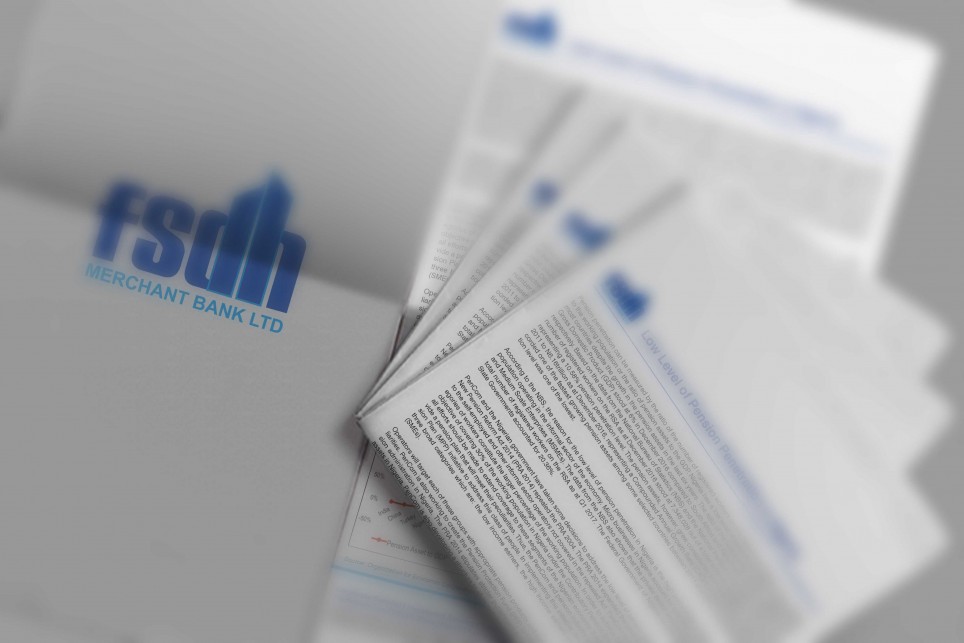FSDH urges Firms’ to limit FX exposure

The anticipated hike in interest rate by the Federal Open Market Committee (FOMC) of the United State Federal Reserve is expected to have a negative impact on foreign capital inflows into Nigeria as well as on foreign exchange (FX) rate.
Owing to this, analysts at FSDH Merchant Bank have advised companies in Nigeria to limit their FX exposure.
They gave this advice in their macroeconomic and financial markets outlook (2019 – 2021) titled: “Bumpy Road Ahead – Policy Options and Strategies,” unveiled at the weekend.
In fact, the firm predicted that the US Fed may raise the rate three times in 2019 to a range of 3.00%- 3.25%. However, FSDH Research does not expect a rate hike at the January 2019 meeting. The FOMC will have its first 2019 meeting on 29-30 of January.
Providing insights on the report, the Head of Research and Strategy at FSDH Merchant Bank Limited, Mr. Ayodele Akinwunmi, also advised companies to adopt FX hedging strategies as well as embark on import substitution strategies and invest in sectors that have export content to grow revenue.
On the other hand, he urged the federal government to develop the non-oil export sector of the economy, in order to increase FX earnings for the country as well as adopt a uniform FX rate regime and simultaneously the removal of subsidy.
Akinwunmi, stressed that further increase in the interest rate in the international financial market may lead to higher interest expense on FGN borrowings from the international market than the existing loans; rise in yields on fixed income securities may rise lead to increase in interest expenses for corporates; increase in interest rates on foreign debt; monetary policy challenges and pressure on foreign currency and decrease in global financial liquidity which may affect financial flows into the Nigerian financial market.
“FSDH Research expects the average crude oil price to drop in 2019 compared with that of 2018. A significant decline in the crude oil price will have negative fiscal and monetary implications for the Nigerian economy.
“The US and China trade war may also lead to a drop in the demand for crude oil leading to a drop in price. China and US account for about 33 per cent of the global crude oil demand. The OPEC production cut may reduce the Nigerian government’s revenue if crude oil price does not rise to compensate for the output cut. This will increase fiscal deficit, also put pressure on exchange rate, inflation rate and interest rates,” he explained.
Therefore, Akinwunmi advised Nigerian policy makers to implement policies that would lift aggregate demand in the domestic economy, saying investment in critical infrastructure would grow key sectors of the economy and allow for stronger buffers against external shocks.
It is also important to invest in human capital, quality education and healthcare in order to increase productivity in the country, he said.
He predicted an adjustment in the value of the exchange rate toward N390/US$ in 2019.
FSDH Research estimated a real Gross Domestic Product (GDP) growth rate of 1.94 per cent in 2018 and predicted a growth rate of 2.48 per cent in 2019.
“The real GDP in 2018 showed improvement but the economy remains fragile. The real GDP growth rate still remains sluggish – lower than the population growth rate in the country of about 2.78 per cent. As at third quarter 2018, the three largest sectors of the economy, which account for 56 per cent of the total GDP, recorded positive growth rates. FSDH Research notes that other dominant sectors of the economy which contracted during the quarter recorded lower contractions than were recorded in second quarter of 2018,” the report stated.
In terms of the opportunities in the Nigerian economy, the report noted that the agriculture and agro-processing sector would continue to generate investors’ interests as some manufacturing firms adopt backward integration strategies. It anticipated that the federal government and states would sign more public private partnership (PPP) to develop promote infrastructure development; that construction activities would continue to grow – road, rail, etc; the emergence of real estate sector from economic depression should create job opportunities for all categories of labour.
However, it identified a possible drop in government revenue and foreign exchange inflow because of expected drop in crude oil exports; elevated inflation on account of removal of subsidy on Premium Motor Spirit (PMS) pump price which is capable of eroding the purchasing power of consumers in the short-term; weak infrastructure in the country leading cost of doing business; expected increase in yields on fixed income securities which may increase borrowing cost and reduce earnings as well as a possible insurgencies in the oil producing states or food producing regions in Nigeria, as some of the potential risks the economy may face.
It anticipated that inflation rate in 2019 would average 12.50 per cent.









0 Comments